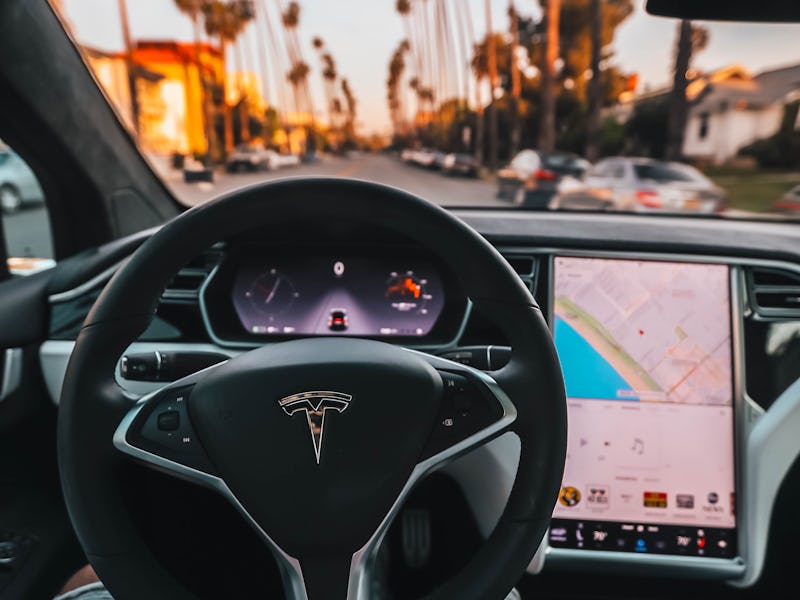Elon Musk Reveals When Tesla's Full Self-Driving A.I. Chip Will Launch

Tesla’s super-advanced A.I. chip is almost here. On Wednesday, CEO Elon Musk shared more details about the upcoming hardware upgrade, which will replace the Nvidia Drive PX 2 found in existing cars to eventually power complete, point-to-point autonomous driving. Musk revealed that the chip will arrive somewhere between four to six months from now.
The new processor was unexpectedly announced last week during Tesla’s second-quarter earnings call, described by Musk as “the key to Tesla full vehicle autonomy.” Tesla is referring to this upgrade as “Hardware 3,” and it’s designed to swap with the Nvidia processor found in “Hardware 2” cars, which is all Teslas manufactured since October 2016. Data released on Wednesday shows that out of the 360,061 cars Tesla has delivered, 196,170 of them use “Hardware 2.” Users who have paid $3,000 to pre-order the “full self-driving” feature will receive the chip as a free upgrade. The chip is not necessary for semi-autonomous Autopilot driving, so users who haven’t placed an order for full autonomy won’t receive any upgrades.
See more: Elon Musk Just Detailed A.I. Chip That Will Power Tesla Full Self-Driving
The processor is designed for running machine learning at “bare metal” level, unlike the graphics chip-based PX 2. Where the PX 2 can process 20 frames per second, Tesla’s chip brings this up to a staggering 2,000 frames with full redundancy and fail-over. Pete Bannon is leading the design team, following a successful career at Apple where he introduced the world’s first 64-bit smartphone processor with the iPhone 5S. Bannon claimed during last week’s call that the chip supports the existing machine learning networks “with a lot of idle cycles to spare.”
There’s a few unanswered questions around the rollout. Tesla requires “full self-driving” customers to also buy the “enhanced Autopilot” software, which costs $5,000 at the time of the car’s purchase and $6,000 thereafter. The company currently charges $3,000 extra for full autonomy, but Musk has suggested this could rise to $5,000 after release. When this change will occur, and how Tesla will manage the rollout of these chips, is still unclear.
While the chip is expected to ship soon, the software is another matter. Musk promised coast-to-coast drives by the end of 2017 at the October 2016 launch, but in February of this year he had to admit that the team missed this goal. The team is now focused on shipping the ninth version of Autopilot in September first, meaning news about software release is unlikely to arrive until sometime after that.
Musk has big ideas for when these cars arrive, previously suggesting an autonomous taxi service that could give Uber a run for its money.